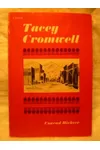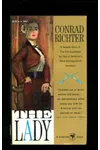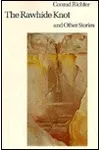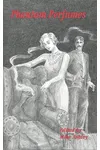Picture a storyteller who spun tales of America’s rugged frontier, where pioneers carved out lives against untamed landscapes—meet Conrad Richter! Born in 1890 in Pine Grove, Pennsylvania, this Pulitzer Prize-winning author brought the spirit of early America to life with lyrical prose and heartfelt narratives. His novels, steeped in historical fiction, capture the grit and grace of frontier life, making him a beloved figure in American literature.
Richter’s work, like The Sea of Grass and the Awakening Land trilogy, resonates with readers who crave authentic stories of resilience and change. Let’s dive into the life and legacy of this remarkable writer, whose pen painted the past with vivid detail.
The Making of Conrad Richter
Conrad Michael Richter grew up in Pennsylvania’s coal country, surrounded by tales of his Pennsylvania Dutch ancestors and their pioneer roots. His father, a Lutheran minister, and his family’s storytelling tradition sparked a love for history that would define his career. After graduating high school at 15, Richter took on odd jobs—think coal breaking and farming—before landing as editor of the Patton Courier at 19. His early foray into journalism sharpened his knack for vivid storytelling, setting the stage for his literary journey.
In 1928, seeking a fresh start for his wife’s health, Richter moved to New Mexico. The Southwest’s vast landscapes and rich history captivated him, fueling his passion for researching frontier life through diaries, letters, and oral histories. This immersion became the heartbeat of his fiction, blending authenticity with a poetic touch.
Conrad Richter’s Unforgettable Stories
Richter’s novels are like time machines, transporting readers to the American frontier with lyrical prose and deep empathy. His breakout, The Sea of Grass (1936), set in late 19th-century New Mexico, explores the clash between ranchers and farmers. Its vivid imagery and emotional depth earned it a National Book Award nomination and inspired a 1947 Spencer Tracy and Katharine Hepburn.
Richter’s crowning achievement is the Awakening Land trilogy—The Trees (1940), The Fields (1946), and The Town (1950). This saga follows the Luckett family’s journey from Ohio’s wilderness to a bustling town, capturing the transformation of the American landscape. The Town won the 1951 Pulitzer Prize, praised for its authentic dialogue and sweeping scope. Another gem, The Waters of Kronos (1960), an autobiographical tale of memory and loss, snagged the 1961 National Book Award.
Richter’s style weaves folklore, dialect, and meticulous research, creating stories that feel both timeless and intimate. His themes—resilience, progress, and the cost of civilization—still echo today, inviting readers to reflect on humanity’s dance with nature and time.
Why Conrad Richter Matters
Conrad Richter’s work endures because it speaks to the heart of the American experience—grit, hope, and the bittersweet march of progress. His novels preserve the voices of pioneers, offering a window into a vanishing world. By blending historical accuracy with poetic storytelling, he carved a unique niche in American literature, influencing writers who explore the frontier’s legacy.
His accolades, including the Pulitzer and National Book Award, cement his status, but it’s his ability to make history feel alive that keeps readers returning. From classrooms to book clubs, Richter’s stories spark conversations about identity, heritage, and the land we call home.
- Born: October 13, 1890, Pine Grove, Pennsylvania
- Died: October 30, 1968, Pottsville, Pennsylvania
- Key Works: The Sea of Grass, The Awakening Land trilogy, The Waters of Kronos
- Awards: Pulitzer Prize (1951), National Book Award (1961)
Ready to step into the frontier? Grab The Town or The Sea of Grass and let Conrad Richter’s lyrical tales sweep you away!


















